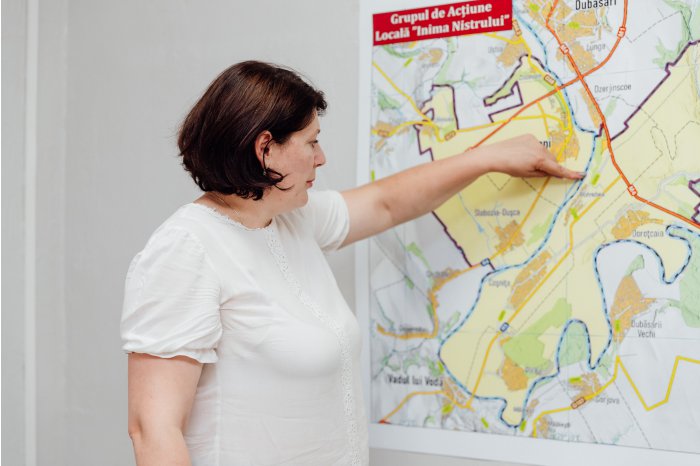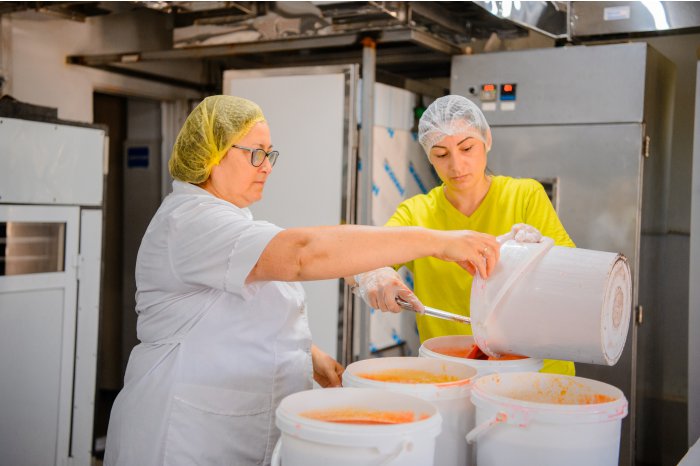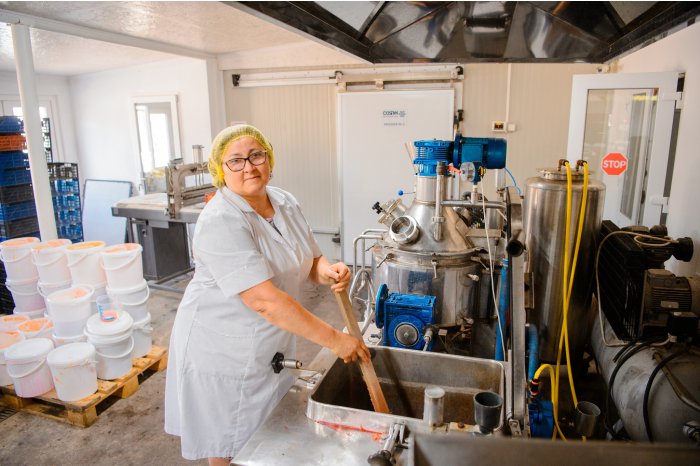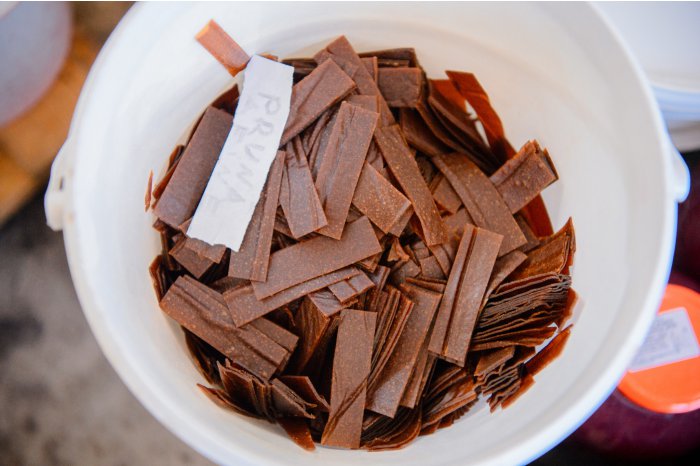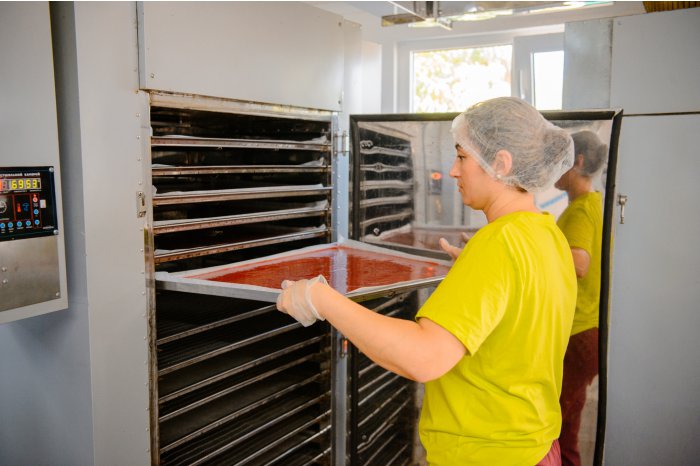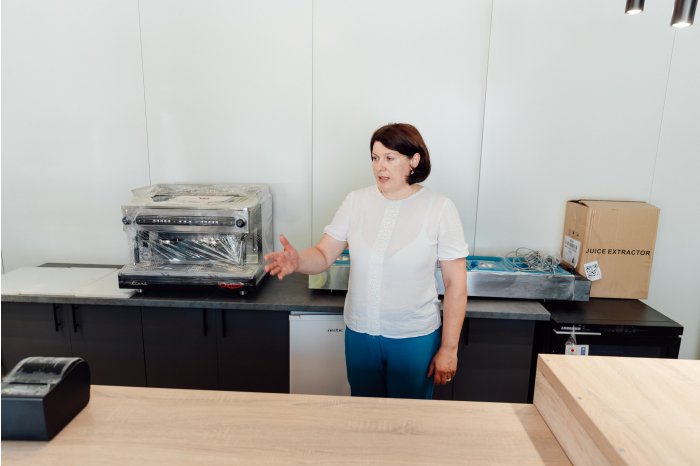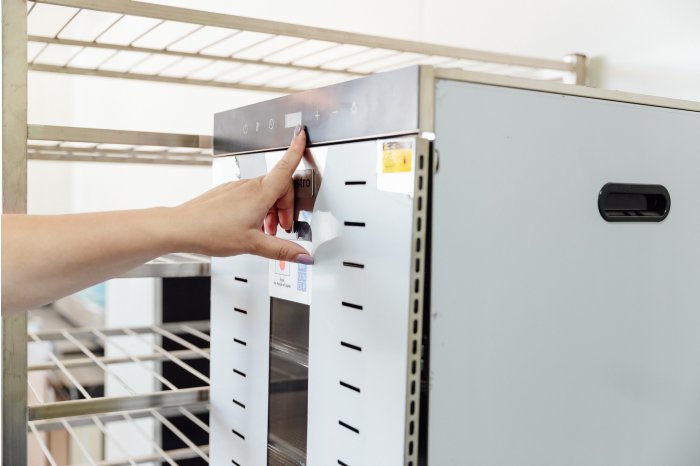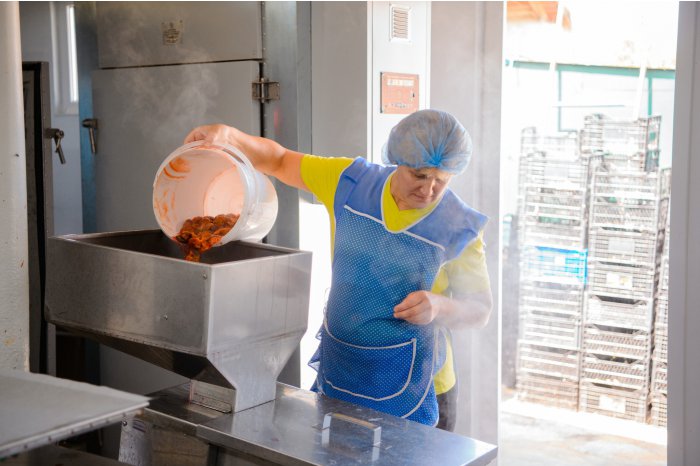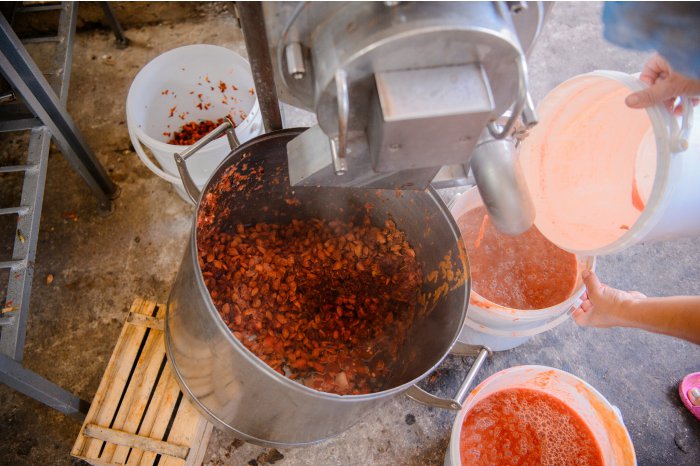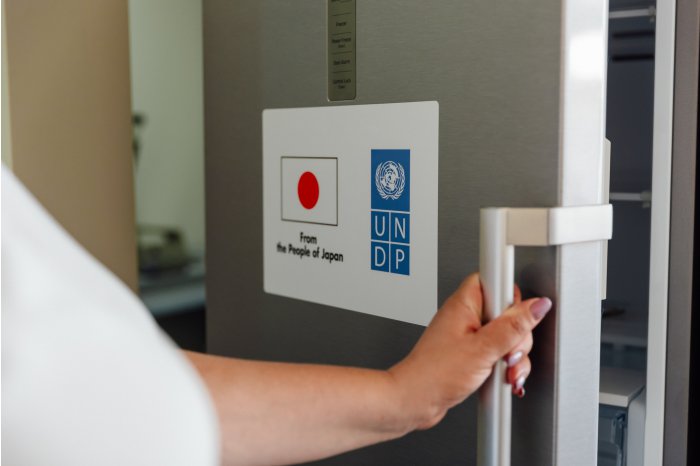Two entrepreneurs from Dubasari, Criuleni districts of Moldova start new business niche - fruit pistil
15:36 | 05.11.2024 Category: Regional
Viorica Verlan from the Parata village, eastern Dubasari district, knows how is to cultivate fruits and vegetables, but not to be able to sell all of them and look at how they are drying. Verlan was witness of this challenge, faced by local producers, whom she provides accountancy services. Then she had an idea to start a business with pistil.
When looking for more information and perspectives, she learned about Ludmita Catravet from Criuleni – entrepreneur with eight years of experience in the field of production of pistil. It took Ludmila some time, however, to make the pistils and promote them through direct sales, taking into account the small niche of consumers.
The fruit pistil – benefits both for health and for the budget
The fruit pistil is a product which has been consumed all over the world for centuries. Through the drying of fruit puree for getting a consistence resembling the one of a band, early crops managed to create a portable and durable snack, which helps conserve the excess of fruits, especially during the harvesting season.
In Moldova, the production of pistil is presently an expanding industry, which turns to account the production of a variety of fruits, including apples, plums and berries. Besides, households of Moldova have an old tradition of drying fruits as way of conservation, often producing pistil in home conditions.
The modern process of production starts with the selection of fresh and ripe fruits, which are afterwards washed, cleaned of skin and stones. The fruits are mixed until they reach the consistence of a homogenous puree, to which sweetener or lemon juice is added. The puree is expanded uniformly on trays covered with paper for baking or on trays of a dehydrator and is dried in oven or in a dehydrator of food products, becoming a tasty snack, without preservatives and artificial ingredients.
Starting of a business from the scratch
Endowed with valuable knowledge and a well-set business plan, Viorica participated in a contest of business ideas organized by the United Nations Development Programme (UNDP) and Japan and thus got basic, modern and energy efficient equipment worth 20,000 dollars, in order to create a production unit: dehydrator, oven, as well as table of unoxidable steel.
Ludmila also benefited from support for business on behalf of the government of Japan and UNDP. She received equipment for removing stones from sweet cherries, apricots and other fruits, as well as an apparatus which separates the pulp from stones, being used also for making fruit puree, such as apple or plum puree. The smallest stones can be removed with the help of this equipment, such as of raspberries and strawberries. With Japanese funds, Ludmila bought also a machine for washing fruits, a transporter for sorting and a packing machine for dry fruits.
Ludmila Castraveț: This support is quite important for the business. The small enterprises, especially the ones developed by women in rural areas, vitally need both financial and information support, in order to be able to flourish. We feel encouraged to improve the productivity, competitiveness and durability, either it is about a startup or a business with experience.
‘’If we join the forces and use complementary equipment, we can provide a market place to our product.’’
Now, Ludmila and Viorica have the same way in business.
Both women are members of the same tourist micro-cluster – Dniester’s Heart – founded with the support of UNDP and Switzerland, in order to facilitate the smart specialization of local economies. Viorica was elected manager of the tourist cluster, which has 52 members.
Presently, while Viorica plans to open a restaurant and an adjacent bake house. Ludmila makes efforts, to establish partnerships with local networks of hypermarkets and to certify the production, so that it could be exported to the European Union. Meanwhile, the micro-cluster helped her identify a new business partner, in order to test a new line of pistil from forest cornels and water melon.
Correspondent: Lilia Grubii
